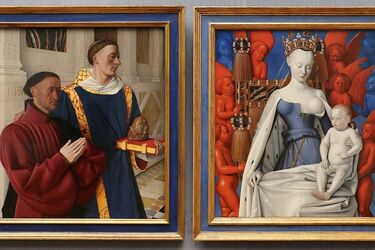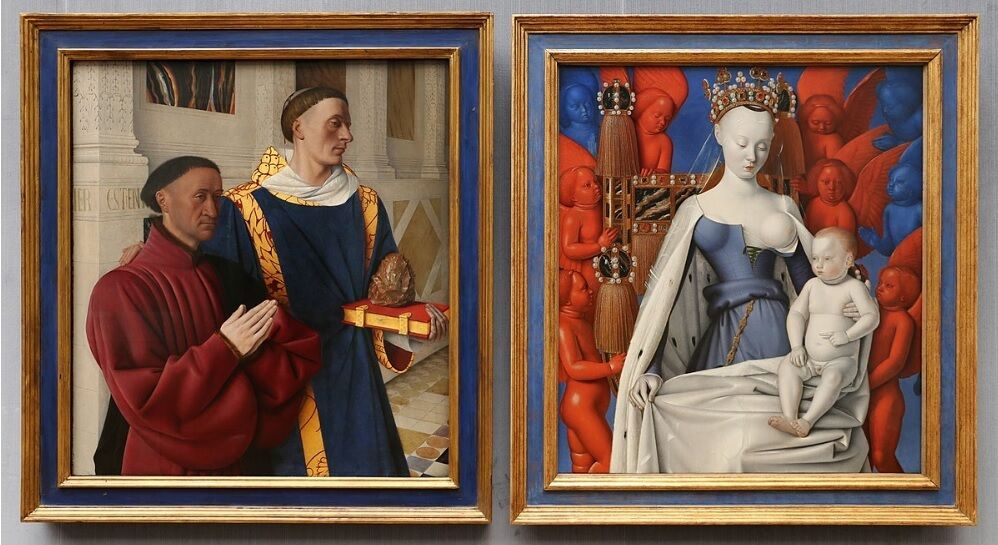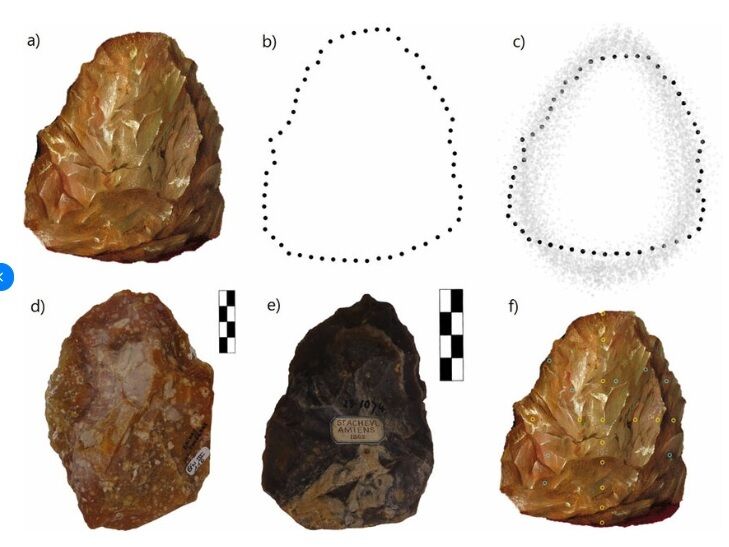A strange object was spotted in a French painting: scientists explained what it is (photo)

An artistic image of an Ashel hand-held chopper was found on the painting "Melun Diptych", painted around 1455 by the French artist Jean Fouquet.
The results are published in the Cambridge Archaeological Journal, Phys.org reports. It is noted that the painting (left panel of the Melun diptych) depicts Etienne Chevalier with St. Stephen. Etienne Chevalier is depicted in a red robe and St. Stephen in blue. An axe-like object lies on top of the book and serves to identify St. Stephen, who was stoned to death.
Read also: In Britain, a couple accidentally found a painting worth millions in their house (photo)

Scientists note that 500,000 years ago, human ancestors used large stone tools that look like the image in the artist's painting. These tools were Ashelian hand axes.

These oval and pear-shaped prehistoric tools were often made of flint and had a pointed end. According to written sources, before the Enlightenment, people thought they were of natural origin. They were called "thunderstones released from the clouds," with the earliest records dating from the mid-16th century.

The artist even conveyed their color quite accurately. There were 33 chips on the surface.
Research leader Stephen Kangas noted: "Fouquet seems to have taken a special interest in the stone object, perhaps because it captured his imagination."
One of the authors of the analysis, Jeremy DeSilva, added: "I love the idea of linking a hand axe, a utilitarian object that helped hominids survive half a million years ago, to sophisticated medieval French painting. From the Paleolithic era to the Renaissance and beyond, hand axes have been and remain a part of human history."
The Melun Diptych was painted by Jean Fouquet and commissioned by Etienne Chevalier, who was from Melun and served as treasurer to King Charles VII of France.
Read also: Someone tried to sell someone else's T-Rex skeleton at Christie's for $25 million
The diptych consists of two oil paintings on wooden panels: "Etienne Chevalier with St. Stephen" on the left and "Madonna and Child Surrounded by Angels" on the right.
In the painting, Chevalier is depicted in a crimson robe with his hands folded together as if he were praying, while St. Stephen, his patron saint, stands next to him and holds a New Testament, but on the book is a stone object symbolizing the death by stoning of St. Stephen, the first Christian martyr.
As a reminder, Gustav Klimt's last painting, "Lady with a Fan", was sold at Sotheby's for a record £85.3 million (over $108 million). This made it the most valuable work of art ever sold at auction in Europe.
If you want to get the latest news about the war and events in Ukraine, subscribe to our Telegram channel!
